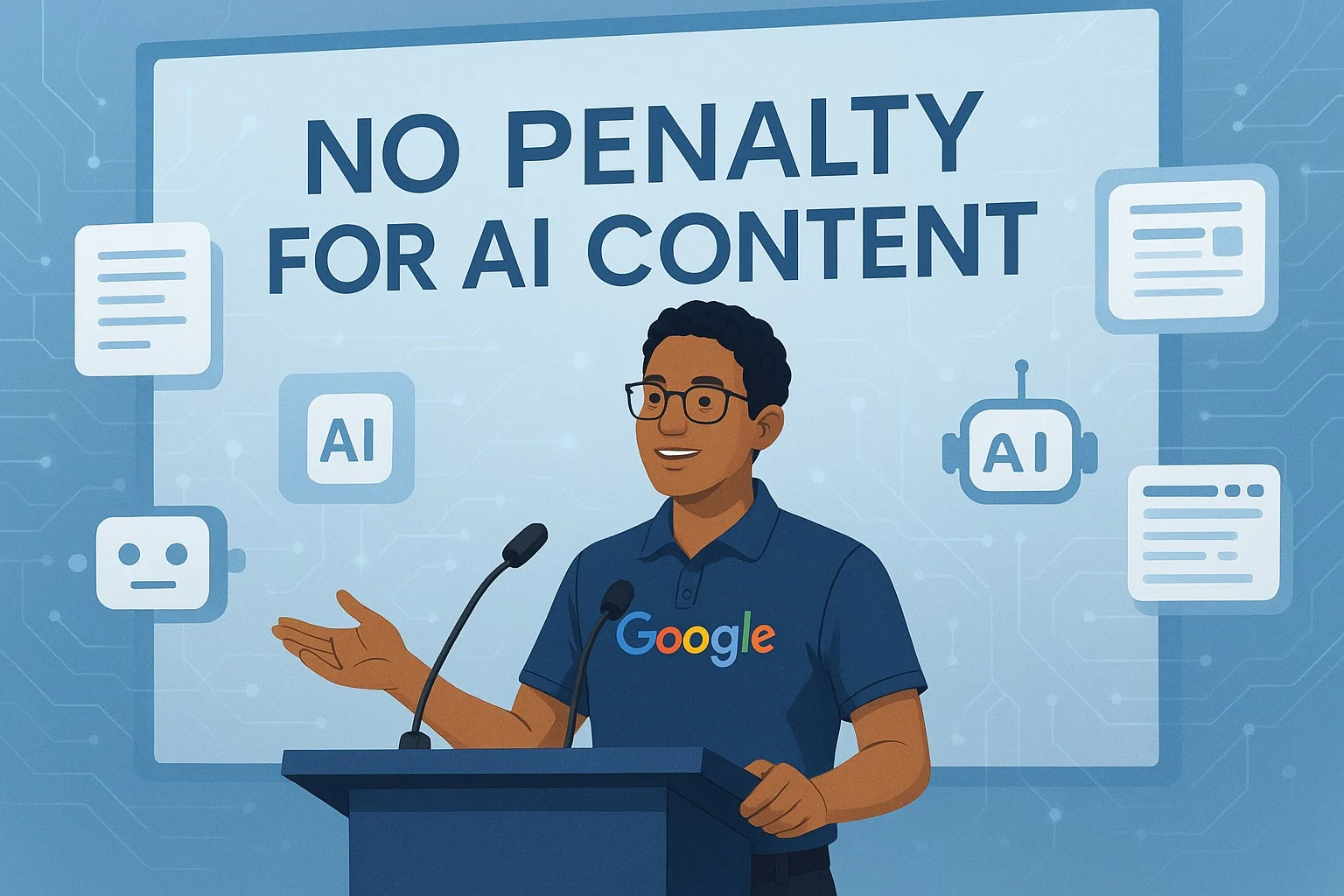Google Confirms No Ranking Penalty for AI-Created Content
Google’s Clear Stance: No Direct Penalty for AI-Generated Content
During a Q&A session with Search Engine Journal, Google’s Gary Illyes addressed whether AI-generated images embedded in otherwise legitimate content could hurt a site’s SEO. His answer was unequivocal:
“No, no. So AI generated image doesn’t impact the SEO. Not direct. … you are not going to… see any negative impact from that. If anything, you might get some traffic out of image search…”
His comments made clear: AI-generated content itself does not trigger ranking penalties.
Why Google Doesn’t Penalize AI — But Quality Still Matters
Google Focuses on Quality, Not Creation Method
Google’s emphasis remains squarely on content usefulness—not how it’s created. As summarized by Search Engine Land:
“Google does not punish AI content.” It punishes bad content.”
Also, a wider agreement in SEO says that accuracy, relevancy, and reader value are the most important things that set material apart, not whether it was written by a person or an AI.
Quality Raters and AI-Generated Flagging
Recent updates to Google’s Search Quality Rater Guidelines now include awareness of AI-generated or auto-generated content. Content that is mainly AI-produced, lacks originality, or brings no added value may receive the lowest quality rating—even if technically compliant. That said, this affects manual review processes, not automatic ranking penalties.
Practical SEO Implications for Publishers
1. Use AI—but Don’t Rely on It Blindly
AI tools can speed up the process of making content, but it’s people who edit and fact-check it that make sure it’s good, meets user demands, and is trustworthy.
2. Leverage AI to Enhance, Not Inflate
AI-generated imagery, for instance, won’t penalize a page—but it should be relevant, accurate, and reflective of what users expect.
3. Avoid Scalable Low-Quality AI Content
Google’s algorithms and raters may nevertheless lower the visibility of content that is too generic or made in large quantities without adding any new information, even if there is no clear “penalty.”
Conclusion
Bottom line: Google does not penalize AI-generated content per se—whether text or images. Instead, it penalizes low-quality, unhelpful content—regardless of its origin. As Illyes pointed out, AI content might even help drive image search traffic if done well.
Content makers should use AI because it’s faster, but they should always put quality first. Use AI as a tool, not a replacement, and make sure that each piece of content gives your readers something new and useful.

